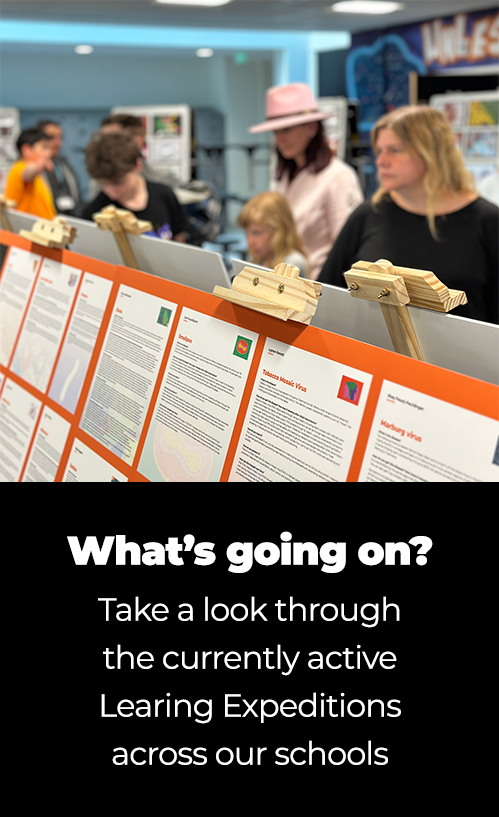GQ: Why do we need to develop a sustainable energy plan for the planet?
Expedition lead: Marc Voltaire
Curriculum: STEAM
Phase/Year group: Year 10
Delivery date: Spring 2022
This STEAM expedition asked fundamental questions about the importance of energy in our daily lives, Where we get it from, how we produce and distribute it, the impact on the planet and the use of Earth’s resources and how we can begin to build a secure and sustainable energy future for us all.
We split the Expedition into three parts – starting with how we extract and use fossil fuels to generate energy to supply the national grid. We focused on the chemical nature of fossil fuels and their combustion leads to an increase in CO2 emissions. We also looked at the chemistry of organic compounds and the processes that are used to extract them from crude oil.
In Case Study 2, we explored the concept of energy itself and the different forms it takes; from the chemical energy we find in fossil fuels to the other forms of energy stores and transfers which may be more useful in sustainable energy and the fight against climate change.
Immersion: Power to the People and the importance of energy
During our immersion we went on a virtual tour of a local power station, which prompted us to begin questioning our notions about the source of our energy, its myriad uses, our personal consumption of power, and contemporary society’s reliance upon energy. We also watched An Inconvenient Truth to highlight the importance of climate change and the scientific evidence behind this.
During the expedition we split our study into 3 case studies; past, present and future:
CASE STUDY 1: What is Energy?
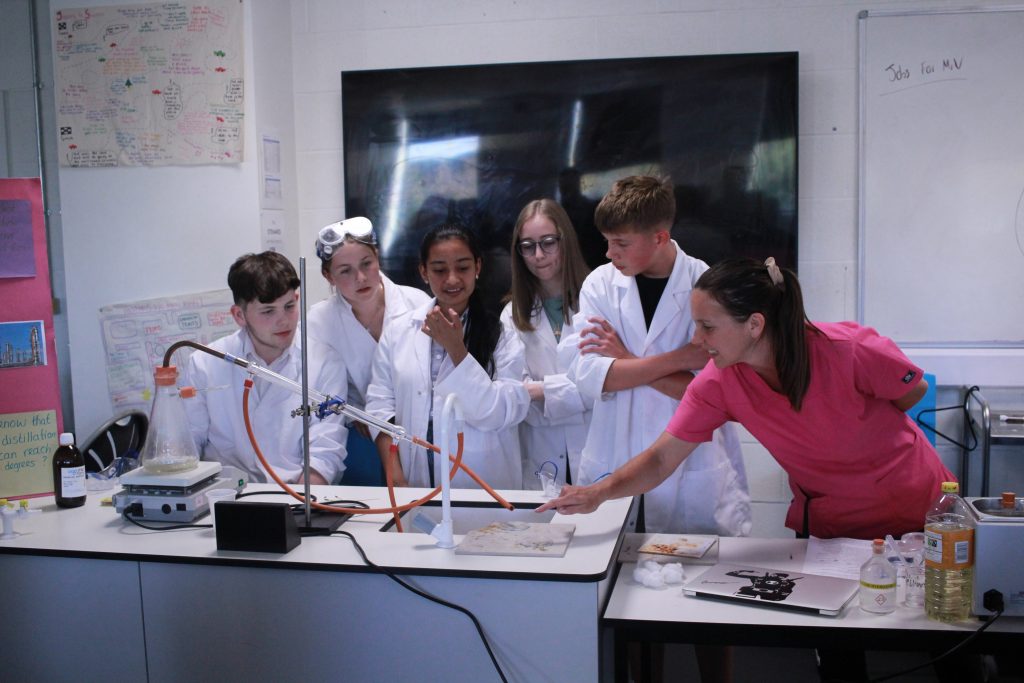
Having learnt about the generation of electricity and how this is largely based on the burning of fossil fuels, we studied the chemistry of hydrocarbons in more depth. We learnt how coal and oil are formed and how crude oil can be split into fractions through a process known as fractional distillation. We analysed charts and graphs and figures (from the book “sustainable energy without the Hot Air” by Professor David JC MacKay Ex Professor of Physics at University of Cambridge) to look at how much of these fuels are left globally and the extent to which these offer a “sustainable” source of energy. We finally asked the question – is this the end of the road for fossil fuels ? and we realise we need to look for alternatives. To supplement our studies, we learnt how to rearrange scientific formulae to change the subject. We substituted values into these formulae to assess how variables in energy equations affect one another.
CASE STUDY 2: How do we get power to the people?
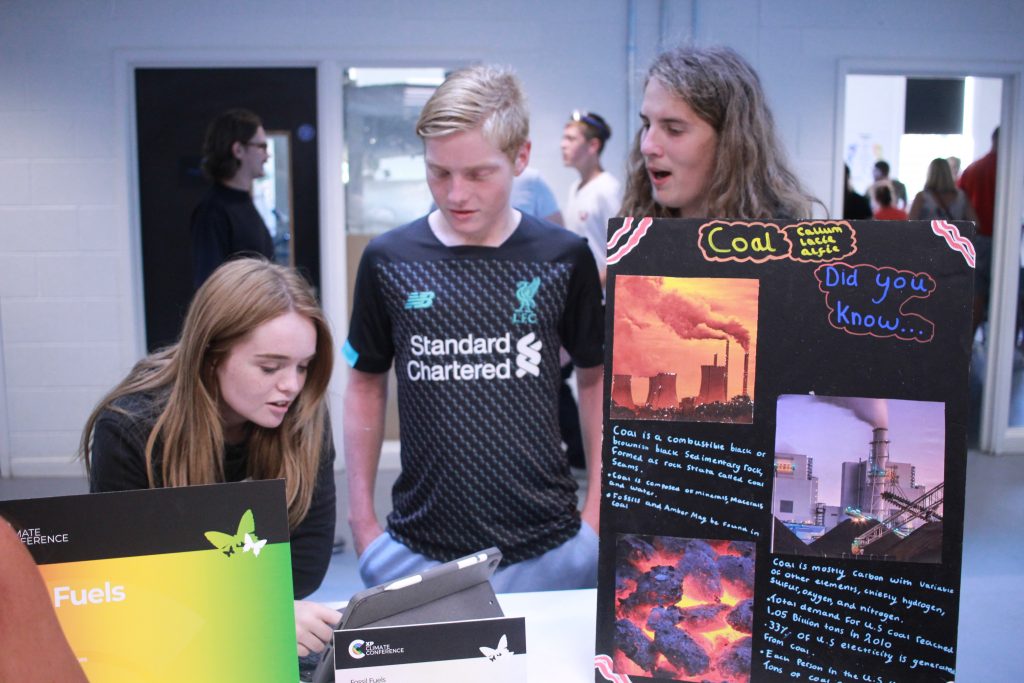
In our second case study we learnt more about electricity and how it is generated. Starting from principles of electromagnets to building electric motors and inducing a current in a copper coil by moving it through a magnetic field we understood how power stations use these same principles to generate electricity. We learnt the reason why we generate electricity as a convenient way to deliver “power” (distribute energy) to the people even though this process is not efficient and wastes huge amounts of energy. From the original fuels burnt in (exothermic) combustion reactions to turn water into steam and to drive huge turbines and generators to produce the electricity that surges along our power lines and into our homes. Using our study of proportion in maths we were able to appreciate the way that current, voltage and resistance interact within a circuit.
Case Study 3: A Change in the Atmosphere
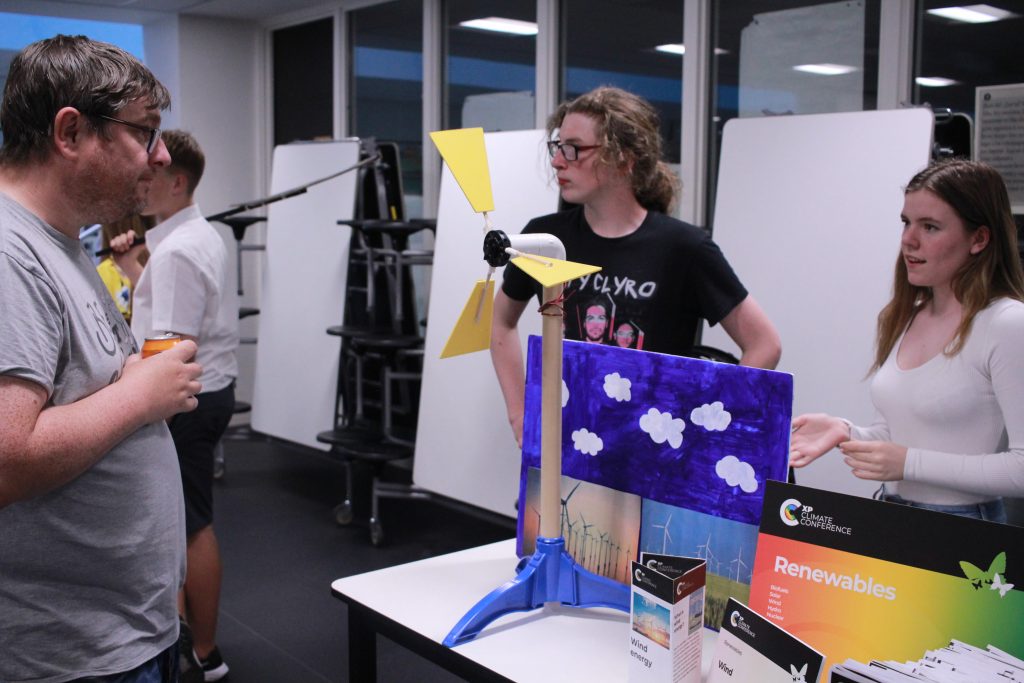
In case study 3, we looked at the development of the Earth’s atmosphere from its early history to the present day. We studied how the atmosphere began and how this changed with the advent of primitive photosynthesising plants which began to change the atmosphere from one filled with carbon dioxide, to one rich in oxygen. We then sought to understand the delicate balance between the removal and release of carbon dioxide and how proportionally, very small increases in carbon dioxide, methane and other greenhouse gases can disrupt this with devastating consequences. We then looked at the way in which people on the local, national and international scale are affected by the onset of climate change and what we can all do to fight against it. We explored viable alternatives to fossil fuels and considered “greener” and more sustainable ways to power our planet and to provide people with the energy they need. We considered the impact on our daily lives and how we would have to adjust and change our behaviours to live in a more sustainable way. From electric cars and hydrogen boilers to wind power and solar energy – we looked at ways in which we would need to re engineer and re imagine our futures.
Final Product
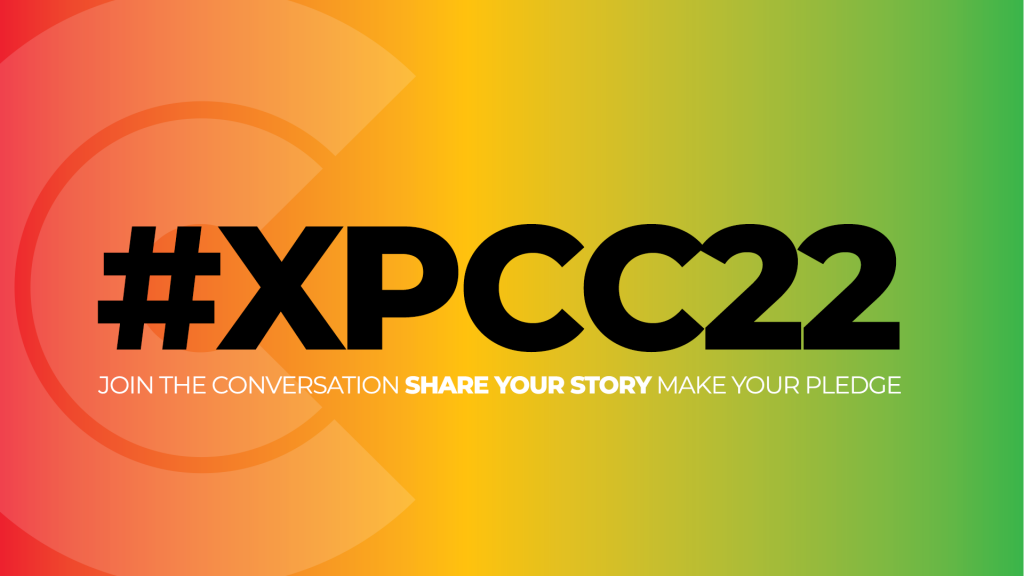
We held our inaugural XP Climate Conference in the final weeks of the summer term at XP School. The climate conference saw our students deliver the keynote speech to delegates which included; the local council, members of parliament, industry professionals with an interest in sustainable energies and practices, the media and members of the public, to highlight the issue of climate change and the threats to Doncaster and the wider world in the future.
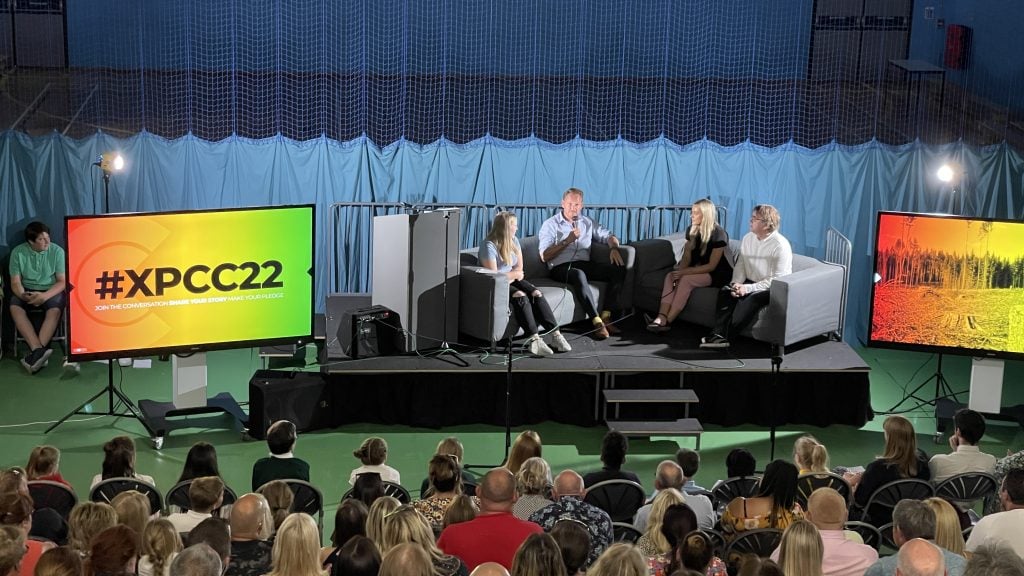
The conference saw our students host and facilitate a live interview of climate professionals and climate change advocates in order to educate the audience about the challenges we face, but also what can be done to safeguard our future. Delegates and guests then accessed the conference hall where they could visit the many different education stands to learn in detail from our students and other climate professionals about the cause and potential solutions to climate change.
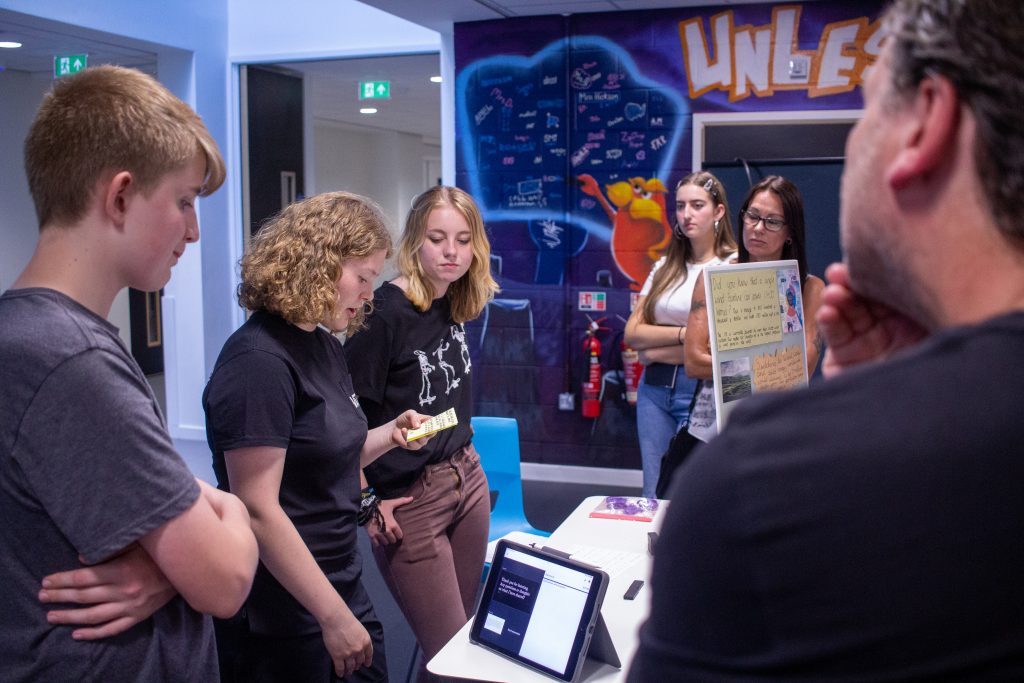
The conference closed with the recognition of the school’s own climate pledge for the future and a challenge to everyone present to play their part in the fight against climate change. Children from the Trust’s Primary Schools also presented their song ‘Dear World’.
Learning Targets
The learning targets for this expedition were as follows:
LT1: I can describe energy changes in a system and the way energy is stored
LT2: I can describe the impact of burning fossil fuels and the extent which we can continue to rely on these as sustainable sources of energy
LT3: I can explain how we generate electricity in power stations and why we distribute energy in this form throughout the country.
LT4: I can suggest viable alternative sources of energy and explain why these will offer a more secure and sustainable energy future for our planet.
Maths:
LT1: I can explore linear relationships using graphical representations, and use these to explore direct and inverse proportion.
LT2: I can rearrange scientific formulae to change the subject and substitute values to evaluate how the formulae change.



